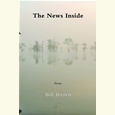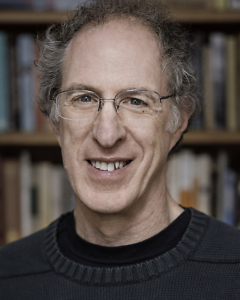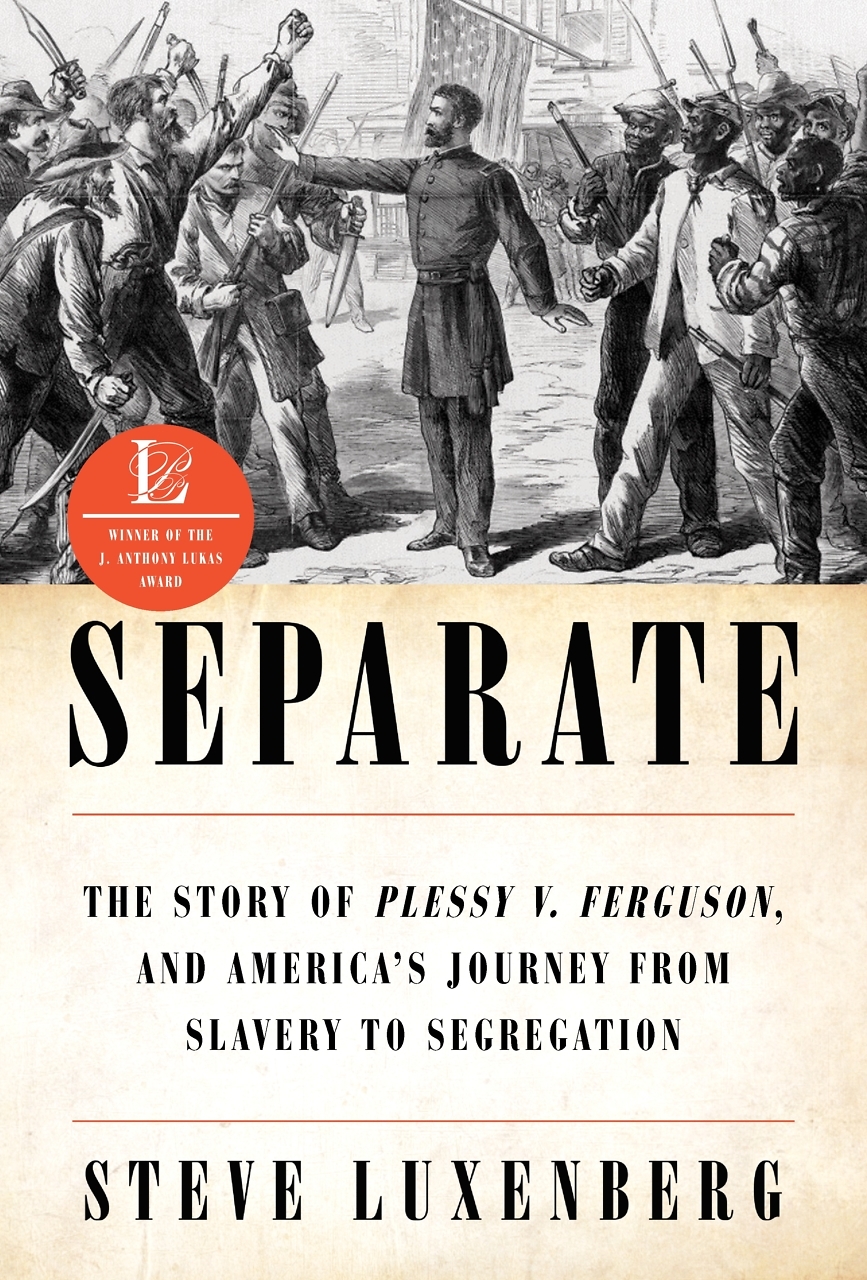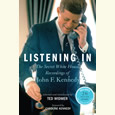Bearing Witness
David Dark on resisting “deferential fear”
The intersection of our spiritual, communal, and political lives has always been David Dark’s intellectual territory. In books like The Possibility of America and the recently revised Life’s Too Short to Pretend You’re Not Religious, Dark encourages us to be willing to mix it up, so to speak — to see the sacred in the profane (and vice versa), to stay awake to the voices that influence and inspire us, no matter their source, and to question everything.
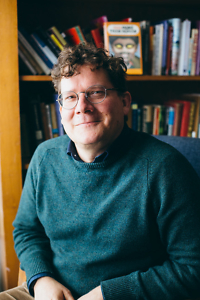 He’s working the same ground in his latest book, We Become What We Normalize, but the emphasis here is on freeing our questioning selves to engage the world’s ills. Most of us, he argues, operate with some degree of “deferential fear” — a habit of self-protective silence and conflict avoidance that ultimately makes us complicit in a multitude of things we know to be wrong. As he sees it, the cumulative effect of all this silence is immense:
He’s working the same ground in his latest book, We Become What We Normalize, but the emphasis here is on freeing our questioning selves to engage the world’s ills. Most of us, he argues, operate with some degree of “deferential fear” — a habit of self-protective silence and conflict avoidance that ultimately makes us complicit in a multitude of things we know to be wrong. As he sees it, the cumulative effect of all this silence is immense:
Our evasions and the evasions of others yield, with humiliating exactness, the cultures, the systems, we’re in. We become what we normalize. And we create, sometimes haplessly, sometimes purposefully, cultures that normalize more than a little dysfunction, more than a little toxicity and terror and trauma.
Dark, a lifelong Nashvillian, teaches at Belmont University and the Tennessee Prison for Women. He answered questions by email.
Chapter 16: The more I think about what it means to “normalize” something, the more slippery and difficult the idea becomes. Don’t we all go on living our daily lives knowing the world is filled with horrors? Are we normalizing that reality or simply surviving it? What does it mean to normalize something?
David Dark: I thank you for these questions. Let me first say that the saying “We become what we normalize” arose in my mind as a personal admonition, a stay against confusion in trying times. I think it a trustworthy saying and a challenging and provocative book title, but I don’t offer it as a universal dictum even as I believe it to be true. Yes, it’s a horror-filled world, but I don’t have the capacity or the bandwidth to address every horror of which I hear tell. That said, I do have the power to say what I see and to refuse to sit still in the presence of abuse. In the limited scope of my own personal context, I can do more than just survive. I can know my own power and exercise it. Normalizing something (disinformation, misogyny, bigotry) is letting it be voiced or enacted in my presence without letting my dissent be known. This is where I’ve felt compelled by my own conscience to overcome my own proneness to conflict avoidance.
Chapter 16: We’re not all equally wired for or accustomed to the kind of engagement you’re recommending. What do you say to the person who’s not complacent but who instinctively recoils from the act of speaking up?
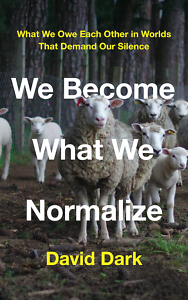 Dark: I say there’s more than one way to give voice to what bothers you. Mother Ann Lee, founder of the Shakers, is said to have said, “Every force evolves a form.” Sit with the feelings, feel their force, give them a form. During Nashville’s lunch counter sit-ins, there were those who found themselves constitutionally incapable of nonviolent actions that would involve being arrested and physically assaulted. They engaged in other ways: making phone calls, offering support, writing letters, scheduling meetings. There are so many ways to bear witness, so many ways to access and even enjoy our own moral power, so many ways to not give in to fear.
Dark: I say there’s more than one way to give voice to what bothers you. Mother Ann Lee, founder of the Shakers, is said to have said, “Every force evolves a form.” Sit with the feelings, feel their force, give them a form. During Nashville’s lunch counter sit-ins, there were those who found themselves constitutionally incapable of nonviolent actions that would involve being arrested and physically assaulted. They engaged in other ways: making phone calls, offering support, writing letters, scheduling meetings. There are so many ways to bear witness, so many ways to access and even enjoy our own moral power, so many ways to not give in to fear.
Chapter 16: Does refusing to normalize sometimes include closing a door to certain people in our lives? Is there ever a justification for ending communication?
Dark: I’m afraid so. The older I get, the more comfortable I am infuriating people for the right reasons. I love uncurated conversation and open-ended dialogue. I love asking and answering questions and explaining myself concerning something I’ve said or set down. But I can’t help anyone with their accusations or their unexamined characterization of my positions. There comes a time to draw boundaries with publicly abusive people. Which isn’t to say there’s no hope for them. A person is a process. But not every part of their process is something I have to sit still for.
Chapter 16: It seems to me that your vision of moral seriousness rests on a powerful belief in the unlimited potential of love and community. Is that true? And if it’s true, how do you navigate encounters with those who don’t share that belief?
Dark: It is true. I navigate encounters with those who don’t share that belief by remembering there’ve been times aplenty when I myself didn’t share that belief. At those times, there have been those who held a door open for me by not mistaking my deepest self for my most toxic and reactionary positions. They found that there was a little something to affirm in me. I try to extend that intellectual hospitality unto others as it was lavished, here and there, on me. And to be clear, it’s still lavished on me by my kids, by my students, and by numerous people whose backgrounds differ from mine. The way of affirmation is a two-way street. I mean to make the most of it.
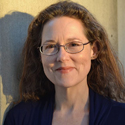
Maria Browning is a fifth-generation Tennessean who grew up in Erin and Nashville. Her work has appeared in Guernica, the Los Angeles Review of Books, Literary Hub, and The New York Times. She’s the editor of Chapter 16.

